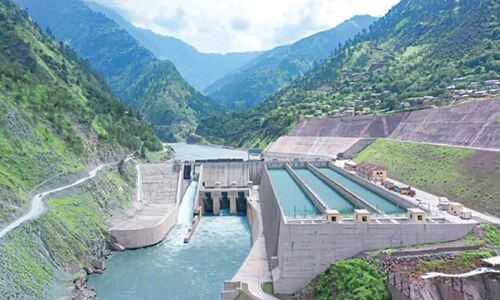
The current confrontation between the Supreme Court of Pakistan (SC) and the Executive branch is strikingly similar to the clashes amongst America’s founders, highlighting the fact that such conflicts are symptomatic in the development of any constitutional democracy.
The use of judicial review by the SC to check the actions of elected officials is a contentious issue, just as it was in the 19th century in the newly formed United States. Eventually, American politicians learned to respect the writ of the Supreme Court as a means to ensure stability and respect for the state overall. In Pakistan, such reverence for the Court may come at the cost of political goodwill, but President Asif Ali Zardari should recognise how crucial the courts will be in developing the nation’s constitutional democracy.
The legal issue presented before the Supreme Court in the current controversy is that Sohail Ahmed was removed from his post in the FIA by Prime Minister Yousuf Raza Gilani after he followed a Supreme Court order to investigate the Hajj scam. In its most recent order to the Prime Minister’s office, the SC requested a reason for Mr. Ahmed’s dismissal and asked the Executive to reinstate him with a position at the FIA.
The Supreme Court stated that the Executive branch should have honoured its requests because “once a judicial order is passed, it has binding effect on the Executive as well as Judicial functionaries in terms of Articles 5 and 190” of the Constitution of Pakistan. These articles guarantee that executive authorities “act in aid of the Supreme Court” and obey the Constitution. Thus, while the court acknowledges the right of the Executive to administer a Federal Agency, it must do so acting in accordance with the Constitution.
These facts are similar to the landmark judicial review case in American legal history, Marbury v. Madison, where the Supreme Court was to determine whether a newly elected president could be forced to honour an appointment by a prior president. The issue in the case was that President John Adams had appointed Mr. William Marbury to become a judge. However, when his political rival Thomas Jefferson was elected president, he refused to honour the appointment.
Before looking at the holding of the case, one should look to the limitations presented to the Supreme Court at the time. Many constitutional scholars state that while the Court wished to resolve the case, they were cognisant of President Jefferson’s hostility to them. In fact, President Jefferson had been on record as stating that an overly powerful court will lead to judicial oligarchy, which would be a paramount threat to democracy. Thus, before deciding the case, Chief Justice John Marshall contemplated noncompliance of the courts order by Jefferson, and the negative impact this would have on the institution in the future.
The Court held that Mr. Marbury possessed a right to the judge’s seat, but that the Supreme Court could not force President Jefferson to honour the appointment. Thus, Chief Justice Marshall compromised on the issue: he recognised a constitutionally protected right, while allowing the Executive leeway to function independently.
This is similar to the decision by the Pakistani Supreme Court, which recognised Mr. Ahmed’s right to his job, but didn’t require the Executive branch to reinstate him to his past post. Rather, they allowed the Executive branch to have discretion in its assignment of Mr. Ahmed. Thus, the court compromised with PM Gilani and President Zardari, while also asserting its duty to act as a constitutional guardian against the elected branches of government.
Before the Marbury decision in the US, the Supreme Court was seen as a passive branch of the federal government lacking constitutional authority to check the other branches. Then came the revolutionary idea from the American court in Marbury: that because the Constitution is the Supreme Law of the land, and the Court’s job is “say what the law is”, then the Supreme Court has jurisdiction to hear any claim against any elected official violating the constitution. Chief Justice Madison stated “the Government of the United States has been emphatically termed a government of laws, and not of men.” Though the discipline to respect the courts took decades to grasp, it has now become an accepted norm of the American government.
Compare this to the statement given by President Zardari shortly after the decision of the Supreme Court, where he stated, “The Parliament is answerable to the aspirations of the people….The executive cannot hand over its powers to any other institution.” Farhatullah Babar, spokesman for Zardari, has gone onto state, “The Parliament reflected the will of the people, it is mother of all state institutions and, therefore, it is the supreme institution.”
While these assertions of power by the President may be politically profitable, they do not engender respect for the Supreme Court, which is the only body assigned with the duty to maintain the rights and principles enumerated in the Constitution. As Pakistan’s political bodies experience a development of their constitutional democracy, they may find value in the words of Alexander Hamilton who stated that “a limited constitution can only be preserved…through the medium of the courts of justice whose duty it must be to declare all acts contrary to the manifest tenor of the Constitution void.”
The writer holds a Juris Doctorate in the US and is a researcher on comparative law and international law issues.










































